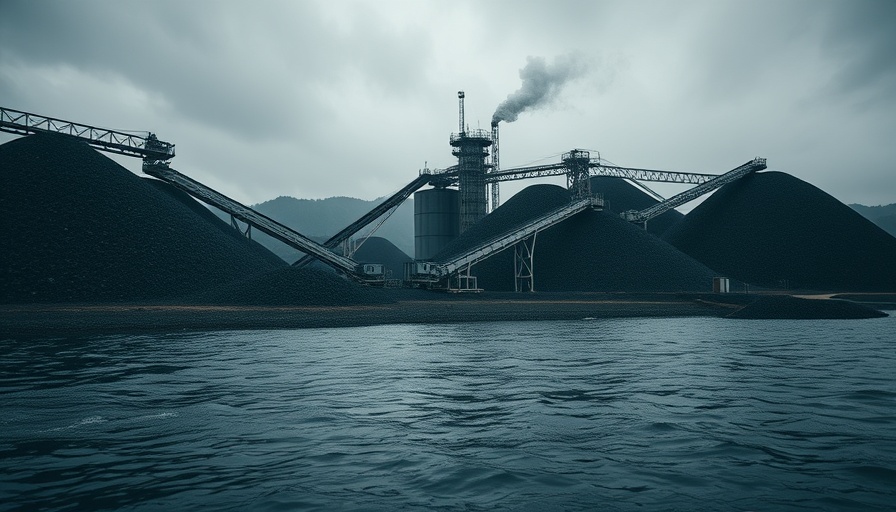
The Dilemma of Puerto Rico's Energy Future
Puerto Rico stands at a pivotal junction in its energy landscape, teetering on the precarious balance between sustainability and a reliance on outdated energy sources. The island's sole coal plant, AES Puerto Rico, has faced mounting criticism for its environmental impact and health implications for local residents. Originally slated for closure in 2027, the utility has now secured an extension that will keep the plant operational until 2034, signaling a lack of proactive measures towards a cleaner energy future.
Environmental Fallout: A Community's Fight
In Guayama, residents like Carmen Suárez Vázquez grapple with the grim realities of living near the coal plant. Life may flourish in vibrant views filled with Caribbean flora, but the lurking dangers are profound. The community is plagued by a fine layer of coal dust that coats their homes and may be contributing to alarming health statistics. Recent studies noted a staggering 88% increase in cancer cases following the plant's operations. As pollution continues to contaminate air and drinking water, community leaders are left feeling helpless against the looming threat to their health and environment.
Regulatory Setbacks and Health Crisis: Who's Responsible?
The situation has worsened with the rollback of Puerto Rico's clean-energy goals, evidenced by Governor Jenniffer González-Colón's new law that dismantles the target of achieving 40% renewables by 2025. Critics argue that such decisions undermine long-term sustainability efforts and reflect a broader political failure to prioritize public health and safety. This raises essential questions about accountability and the need for stricter regulatory frameworks to protect vulnerable communities like Guayama.
Lessons from the Past: A Cautionary Tale
Historically, the establishment of the coal plant heralded severe environmental degradation. The average cancer rate in Guayama prior to the plant's opening was around 103 cases annually; this figure soared to over 209 by 2022, providing a troubling correlation between coal operations and public health. The past serves as a stark reminder of the dire implications of ignoring environmental health for economic expediency. It highlights the necessity for decision-makers to challenge the status quo and actively pursue renewable energy investments.
Charting a Course Towards Sustainability: The Road Ahead
Despite the immediate challenges, the present moment offers a window for transformative change. As pressure mounts from grassroots movements and environmental advocates, there is potential to revisit the vision for sustainable energy development in Puerto Rico. Stakeholders must prioritize investments in renewable energies such as wind and solar, coupled with policies that protect and educate communities. The balance of energy generation and ecological preservation could dictate the health of future generations.
Conclusion: A Call to Action for Change
Now more than ever, decision-makers across sectors must heed the lessons of Puerto Rico's ongoing struggles with coal energy. With environmental justice and public health at stake, it is imperative to seize this moment to foster sustainable practices and policies that will ensure a brighter, cleaner energy landscape for the island. Implementation of innovative energy solutions and accountability measures create pathways for economic opportunity while protecting health and the environment. The future of Puerto Rico’s energy must be forged with intention and foresight, ensuring that the voice of the community resonates in every decision made.
 Add Row
Add Row  Add
Add 




Write A Comment